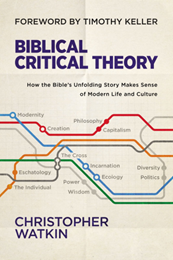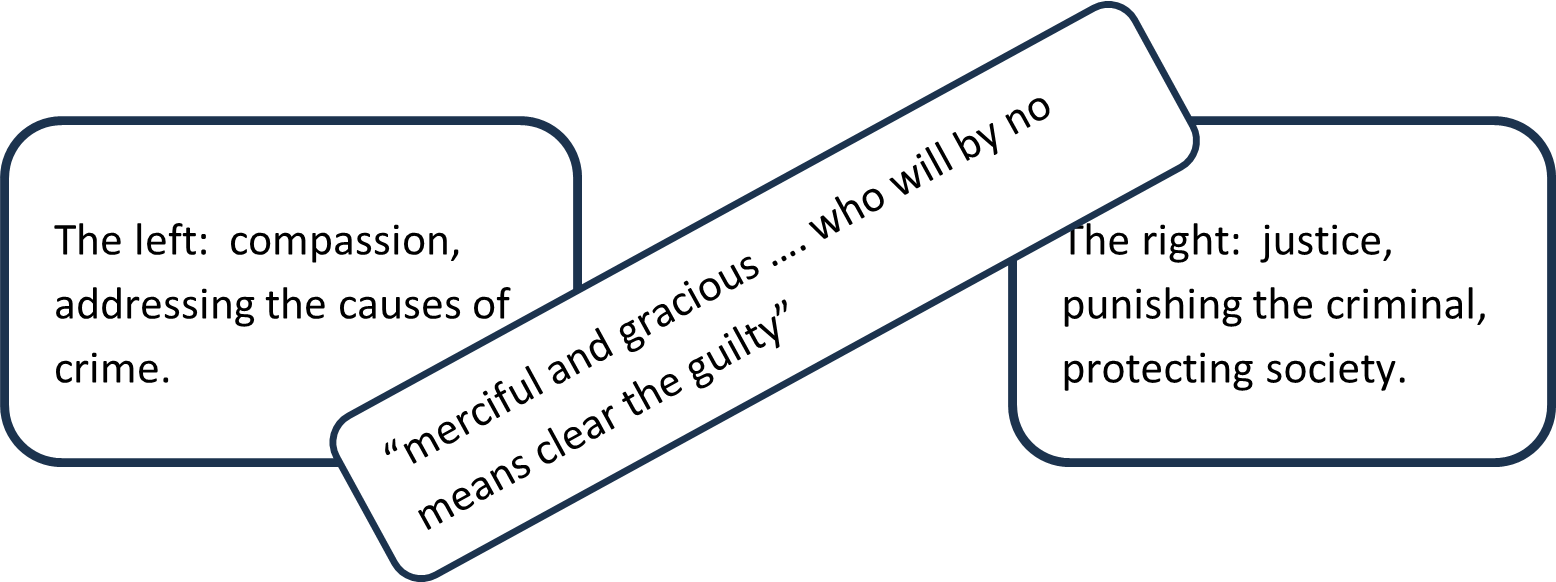
Biblical Critical Theory presents a bold vision for Christians who want to engage the world in a way that is biblically faithful and culturally sensitive.
Critical Theories have largely originated from academic circles but now increasingly influence everyday language, and at heart are a search to unearth a framework to interpret culture and society. Accepting that Critical Theories make certain beliefs and attitudes viable, Christopher Watkin points out the shortcomings of critiquing society and culture from ‘within’ itself and contrasts this with the grand story of the Bible, a revelation from ‘outside’ of society and culture - hence Biblical Critical Theory.
He is inspired by Augustine’s approach in “The City of God” to firstly understand and expose the flaws of late Roman society and then secondly apply as a compelling alternative the whole Bible narrative (not just individual doctrines) to all of life, encompassing politics, art, relationships and society. Watkin enthuses how life lived in the context of this true story “meets our highest aspirations, satisfies our deepest desires and makes best sense of our world and ourselves.” p24
It’s 600 pages and 28 chapters which would suggest it should be a reference work to dip into but, he says, it will reward a straight-through read as the biblical story unfolds. Chapters 1 to 4 cover the Trinity, Creation, Humanity, Sin and Society …. chapter 13, Prophecy and Cultural Critique …. chapter 18, The Cross, Subversion and Grace, …. and chapters 25 to 28, Eschatology. Tim Keller says in the foreword “we should not build a critical theory just from theology in general but in direct contact with the Bible”.
The references the author uses can be intimidating as he navigates us through social, cultural and philosophical bibliography but his own writing is engaging, sometimes with humour, often with illustrations, as he offers insights relevant to today’s issues. The introduction lays the ground for the many topics covered so the reader might find it helpful to revisit it after a few chapters. He is keen on ‘figures’ as a description of patterns of behaviours and ideas and more broadly the rhythms we recognise that make sense of the world. “I want to explore how the world of the Bible refigures our contemporary world with all its priorities, values, assumptions and desires.” p14.
Who is the book for? Students and Christian leaders yes, but also any who seek a resource to help resist either the temptation of remaking the church in the light of today’s critical theories or the urge to merely fight against the culture without letting the Bible have its glorious say. Watkin values apologetics which defends and explains the Bible but positions his book to actively critique the culture through the richness of a biblical view - putting Christians on the front foot.
He uses the term ‘diagonalising’ to deal with the either/or rivalries we so often adopt. This is not as if resolution is somewhere in the middle as a compromise but rather it is a third way, telling a bigger story than the opposite sides of a debate or the bad copies of the biblical reality they often are. He refers to 1 Corinthians where the Greeks took one position (wisdom) and the Jews another (powerful signs). The surprising fulfilment of both is in fact in the ‘foolish’ and ‘weak’ cross of Christ.
For example, in chapter 10 - Abraham and Covenant – he draws out the distinction between relationships which are at the heart of covenant compared with the obligations and logic of equivalence in the terms of a contract. The superabundant provision through covenant, he says, is neither the Eeyore of Hobbes, (man is naturally self-interested and violent) nor the Tigger of Rousseau (man is born free) “Rousseau’s social contract is supposed to bring a banquet of freedom” p245.
In chapter 11 - Moses the Exodus and the Torah - he puts forward that God is neither left or right politically when it comes to criminal justice. The covenant name of God “I am” represents the very core of God’s character of justice and graciousness, two principles that are often in opposition. However, justice and grace meet in Jesus who was full of ‘grace and truth’ as demonstrated and fulfilled by his death on the cross.

The ‘diagonalising’ diagram occurs throughout the book.
In chapter 4 – Sin and Society – he points out that despite our culture attacking sin and judgement as hate speech we should expect to “demonstrate that a winsome, positive, biblically faithful vision of a flourishing society must draw fully on these two unlikeliest of doctrines, and that there is no trade-off between being biblically based and socially sensitive.” The alternative is offering a “warmed-over version of the latest fashion in social theory” p110
While guiding us on the journey through the Bible’s history of redemption Christopher Watkin concludes that an engagement with truth, goodness and beauty should end with praise p602. He invites others to complete his “crudely drawn map” with “the finer details of which he never could...” p604. As for such a modest description others beg to differ in the first page endorsements: “this book is a feast”, “magisterial”, “an expert, timely compendium”, “ambitious, comprehensive and thrilling”, “an effervescently brilliant book”.